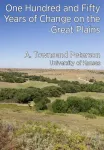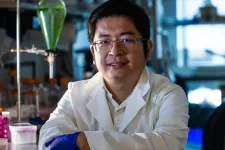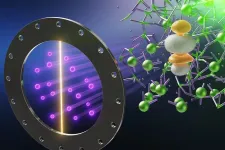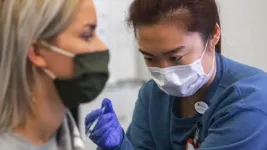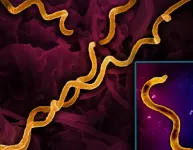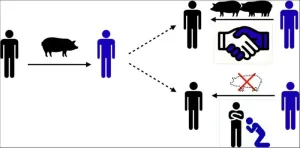(Press-News.org) Researchers at UC Merced used fruit flies to uncover a cellular process common to many organisms that could dramatically impact the understanding of cancer and aging.
Department of Molecular and Cell Biology Professor Fred Wolf, then-graduate student Sammy Villa and Genentech Vice President and Senior Fellow in Physiological Chemistry and Research Biology Vishva Dixit, discovered a mechanism that cells use to tune how much protein they make through the process of translating RNA into protein.
“This mechanism may be responsible for changes in protein translation in stress, cancer, and aging,” Wolf said.
Their work is detailed in the journal Nature Communications.
Wolf and Dixit have a working relationship dating back to when Wolf was an undergraduate and a technician in Dixit’s research lab at the University of Michigan. They stayed in touch after Wolf went to graduate school at Berkeley and Dixit went to Genentech, a member of the Roche Group and a pioneer in biotech industry.
“Vishva knew I was an expert in Drosophila (fruit fly) genetics, a resource that was not available at Genentech,” Wolf said. Normally, Wolf’s lab focuses on understanding the brain circuits and genes that control animal behavior, particularly how alcohol affects the brain and motivation is represented in it.
He and his researchers use Drosophila, a popular choice among researchers because they are inexpensive to work with, reproduce quickly and abundantly and it is easy to alter their genetics to test ideas. Research centered on the fruit fly has led to many sophisticated tools, Wolf said.
But Dixit wanted to understand the function of the protein OTUD6.
“He asked us to use the awesome power of the fly model to discover its function, and we took up the challenge,” Wolf said. “Vishva granted me seed funding to start generating flies with mutations in OTUD6 and testing the mutant flies for any problems they might have. The project really got going when the paper’s first author, Sammy Villa, joined my lab in 2018. Sammy took on the project and his skills in molecular biology and biochemistry were instrumental to the success of the project.”
At first, the researchers had no idea what they were looking for. When they first made flies that were mutant for OTUD6, they expected to see something obvious such as the shape or number of wings or reproductive abnormalities. Instead, the flies appeared normal.
“We stressed the flies in as many ways as we could conceive of and found they were susceptible to chemical stress, for example, oxidative stress,” Wolf said. “This allowed us to search for how OTUD6 contributed to resilience to stress.”
The researchers looked for all proteins interacting with OTUD6 to discover what it does and found it reduced the ribosomes’ protein production by half. The modification lets cells produce more protein.
“We were quite surprised by the huge impact OTUD6 had on how much protein was made in cells: Making flies mutant for OTUD6 cut protein production in half. That’s a big difference,” Wolf said. “The amount of protein produced in cells is known to affect how long animals live, with less protein being made correlating with longer lifespan. Our OTUD6 mutants lived twice as long. We think this is because there is less protein being made.”
The amount of protein generated can also have a huge impact on some types of cancers.
Some types of OTUD6 in humans is found in increased levels in many cancers, and many cancers have increased protein production. The researchers stressed that they have no direct evidence for a link, but increased OTUD6 might contribute to cancer cell growth and proliferation.
Cells can change their amount of OTUD6 to change how much protein is made.
“It has been known for years that there are two other ways for cells to actively tune how much protein is made, and we think we discovered a third way,” Wolf said.
The team is interested in finding out how the cell changes the amount of OTUD6 present in cells, which could help understand how this new pathway is initiated and could lead to new ways of manipulating protein production to positively affect lifespan and possibly even cancer outcomes.
Wolf is affiliated with the Health Sciences Research Institute and the Center for Cellular and Biomolecular Machines. Villa was a USDA Future Farmers scholar while at UC Merced and is now a postdoctoral scholar at Calico Life Sciences in South San Francisco.
END
Researchers discover mechanism that could control longevity, cancer cell production
2024-09-03
ELSE PRESS RELEASES FROM THIS DATE:
Department of Energy announces $142 million in grants to small businesses
2024-09-03
WASHINGTON, D.C. - The U.S. Department of Energy (DOE) today announced awards totaling $142 million for small businesses in 34 states. The 123 projects to be funded address multiple mission-critical areas important for the nation, including clean energy and decarbonization, cybersecurity and grid reliability, fusion energy, and nuclear nonproliferation.
American small businesses play a critical role in these DOE Small Business Innovation Research (SBIR) and Small Business Technology Transfer (STTR) awards, which transform DOE-supported science and technology breakthroughs into ...
Re-creations of 1870s railway photos reveal profound change to Kansas, Colorado plains
2024-09-03
LAWRENCE — A fascinating new book chronicling transformation on the plains of Kansas and western Colorado uses repeat photography — contemporary re-creations of 1870s photos — to reveal startling changes to the landscape.
Its author isn’t just a photographer and veteran of years of “Kansas-ing” — his term for searching off-the-beaten-path curiosities across the Sunflower State — but also a University Distinguished Professor of Ecology & Evolutionary Biology at ...
Rice lab develops protein assembly road map for gas vesicles
2024-09-03
HOUSTON – (Sept. 3, 2024) – As far as water gear goes, floaties are not exactly high tech. But the tiny air-filled bubbles some microorganisms use as flotation devices when they compete for light on the water surface are a different story.
Known as gas vesicles (GVs), the micrometer-sized bubbles hold great promise for a host of biomedical applications, including imaging, sensing, cellular manipulation and tracking and more. The problem is researchers do not yet know how to make medically useful GV varieties in the lab.
Rice University ...
Study: Late start of COVID treatment may still benefit immunocompromised patients
2024-09-03
ATLANTA — Starting antiviral treatment as late as 14 days after infection with SARS-CoV-2 may still be beneficial in hosts with compromised immune systems, who are at greatest risk of developing severe COVID-19, according to researchers in the Center for Translational Antiviral Research at Georgia State University’s Institute for Biomedical Sciences.
While best to begin treatment earlier, in immunocompromised hosts, drugs like paxlovid and molnupiravir appear to inhibit replication of the virus even if initiated up to 14 days after infection.
The ...
Assorted, distinctive behavior of molten uranium salt revealed by neutrons
2024-09-03
Assorted, distinctive behavior of molten uranium salt revealed by neutrons
The Department of Energy’s Oak Ridge National Laboratory is a world leader in molten salt reactor technology development — and its researchers additionally perform the fundamental science necessary to enable a future where nuclear energy becomes more efficient. In a recent paper published in the Journal of the American Chemical Society, researchers have documented for the first time the unique chemistry dynamics and structure of high-temperature liquid uranium trichloride ...
NASA's mini BurstCube mission detects mega blast
2024-09-03
The shoebox-sized BurstCube satellite has observed its first gamma-ray burst, the most powerful kind of explosion in the universe, according to a recent analysis of observations collected over the last several months.
“We’re excited to collect science data,” said Sean Semper, BurstCube’s lead engineer at NASA’s Goddard Space Flight Center in Greenbelt, Maryland. “It’s an important milestone for the team and for the many early career engineers and scientists that have been part of the mission.”
The ...
ESMO Congress 2024
2024-09-03
Lugano, Switzerland, 3 September 2024 – The ESMO Congress 2024 will take place from September 13-17 in Barcelona, bringing together participants from all over the world. Press representatives eager to grasp cutting-edge data and hearing expert perspectives on the latest research, as well as on the current and emerging hot topics in oncology, are invited to attend the event, which will be held both onsite and remotely.
The full congress program is available online to help press representatives browse regular and late-breaking abstract ...
Prestigious NSF award to advance UK research to track emerging pathogens
2024-09-03
We all have lived through a pandemic, its uncertainties, challenges, losses and scientific breakthroughs. A prestigious award from the U.S. National Science Foundation (NSF) is advancing the work of a team of researchers at the University of Kentucky to help society be better prepared for potential future pandemics.
Scott Berry, Ph.D., an associate professor in the Department of Mechanical and Aerospace Engineering in the UK Stanley and Karen Pigman College of Engineering, is the principal investigator ...
NIH awards will support innovation in syphilis diagnostics
2024-09-03
The National Institutes of Health’s National Institute of Allergy and Infectious Diseases (NIAID) has awarded grants for 10 projects to improve diagnostic tools for congenital and adult syphilis—conditions currently diagnosed with a sequence of tests, each with limited precision. The Centers for Disease Control and Prevention (CDC) estimates that adult and congenital syphilis cases increased by 80% and 183% respectively between 2018 and 2022—a crisis that prompted the U.S. Department of Health and Human Services (HHS) to establish a national taskforce to respond to the epidemic.
“Syphilis ...
Explaining the mechanism of social evolution driven by gift giving
2024-09-03
New findings provide quantitative criteria for classifying social organizations in human history, together with potential explanatory variables that can be empirically measured for anthropology, history, and archaeology, according to a study published September 3, 2024 in the open-access journal PLOS Complex Systems by Kenji Itao and Kunihiko Kaneko from the University of Tokyo, Japan and Copenhagen University, Denmark (Kaneko) and the RIKEN Center for Brain Science, Japan (Itao).
Human societies have experienced transitions between different types of organizations, including bands, tribes, chiefdoms, and kingdoms. However, quantitative characterizations of the types and mechanisms of ...
